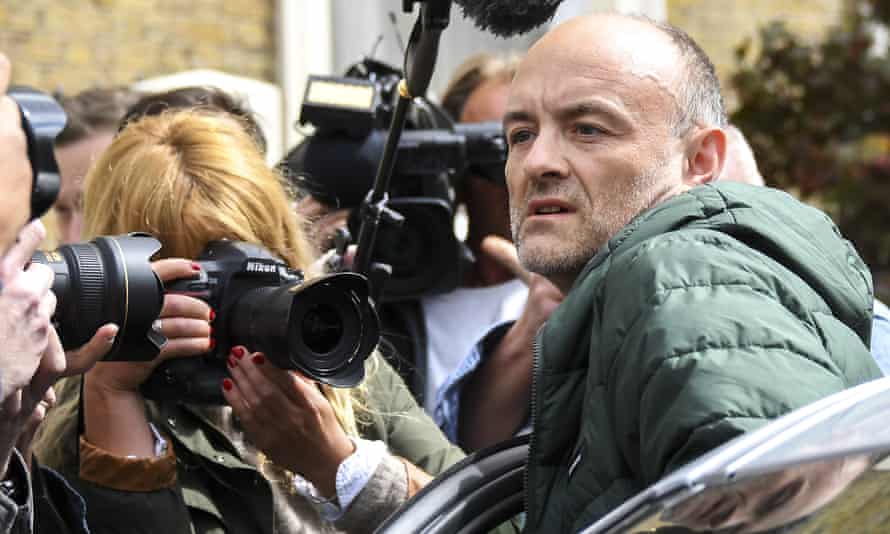Analysis: Scientists agree with the former adviser’s claim, with one calling the estimate ‘conservative’
 Dominic Cummings leaves his home in London on Sunday. Photograph: Alberto Pezzali/AP
Dominic Cummings leaves his home in London on Sunday. Photograph: Alberto Pezzali/AP
One of the most shocking allegations made by Boris Johnson’s former chief adviser Dominic Cummings during Wednesday’s joint parliamentary committee hearing was his claim that “tens of thousands of people died who didn’t need to die”, because of the way the government handled the Covid pandemic.
His claims have some support from scientists, who have estimated that the toll from government delays could be as high as 33,000 lives.
Throughout the pandemic, scientists have accused the government of delaying the introduction of Covid restrictions, at the cost of lives. In June 2020, Prof Neil Ferguson from Imperial College London told MPs that had the first lockdown been imposed a week earlier, this would have saved at least 20,000 lives.
A month later, he and his colleagues warned of a potential new wave of Covid infections, which, combined with winter flu cases and a backlog of patients needing NHS care, posed a serious risk to health in the UK. Using a worst-case scenario, in which the reproduction number, R, rose to 1.7 in September, they predicted a peak in hospital admissions and deaths during January and February, and an estimated 119,000 associated hospital deaths between September 2020 and June 2021.
By 21 September, the government’s Sage committee was urging ministers to head off a second wave of the virus, by introducing five measures, including a circuit breaker – a short period of lockdown to drive new infections down. Other recommendations included advising people to work from home, if possible; a ban on household mixing in homes; the closure of all indoor hospitality, gyms and personal services; and requiring all but essential university and college teaching to be done online. Only the exhortation to work from home was introduced initially.
A four-week lockdown was eventually introduced in early November. According to later estimates by Imperial researchers, 2.5 million people were infected between 22 September and the end of this lockdown on 1 December. If the government had brought in the recommended measures immediately,this would have resulted in 1.3m fewer infections, and between 7,000 and 13,000 fewer deaths (assuming an estimated death rate of between 0.5% and 1%).
Researchers led by Dr Nicholas Davies at the London School of Hygiene & Tropical Medicine (LSHTM) have also modelled how the earlier imposition of restrictions during the autumn might have affected deaths from Covid-19. Their calculations, published in The Lancet Infectious Diseases, similarly suggested that imposing a four-week lockdown on 8 October, rather than 5 November, could have reduced the number of deaths by about 8,000 by December. However, if these restrictions had subsequently been lifted, it could have resulted in a larger number of deaths overall – assuming no further measures were taken to stop this resurgence, such as additional lockdowns.
Extending the four-week November lockdown could also have made a difference. Prof Andrew Hayward, director of the UCL Institute of Epidemiology and Health Care, and a Sage member, said: “Given that lockdowns are highly effective at reducing transmission, if we had continued the November lockdown the great majority of second-wave deaths could have been avoided. So, tens of thousands of avoidable deaths is a conservative estimate of the consequences of lifting this lockdown in the run-up to Christmas.”
Post Views: 673


Leave A Comment